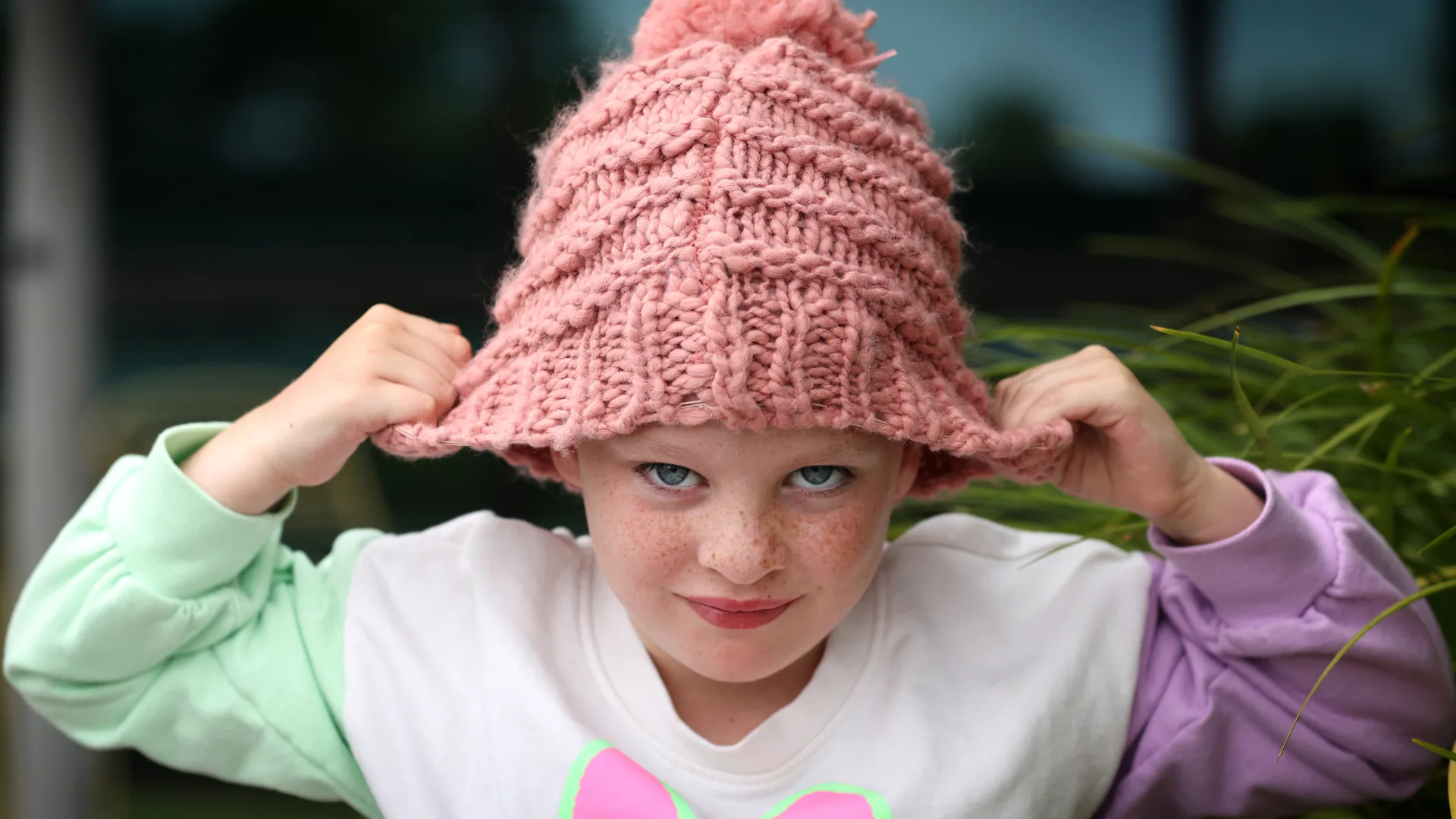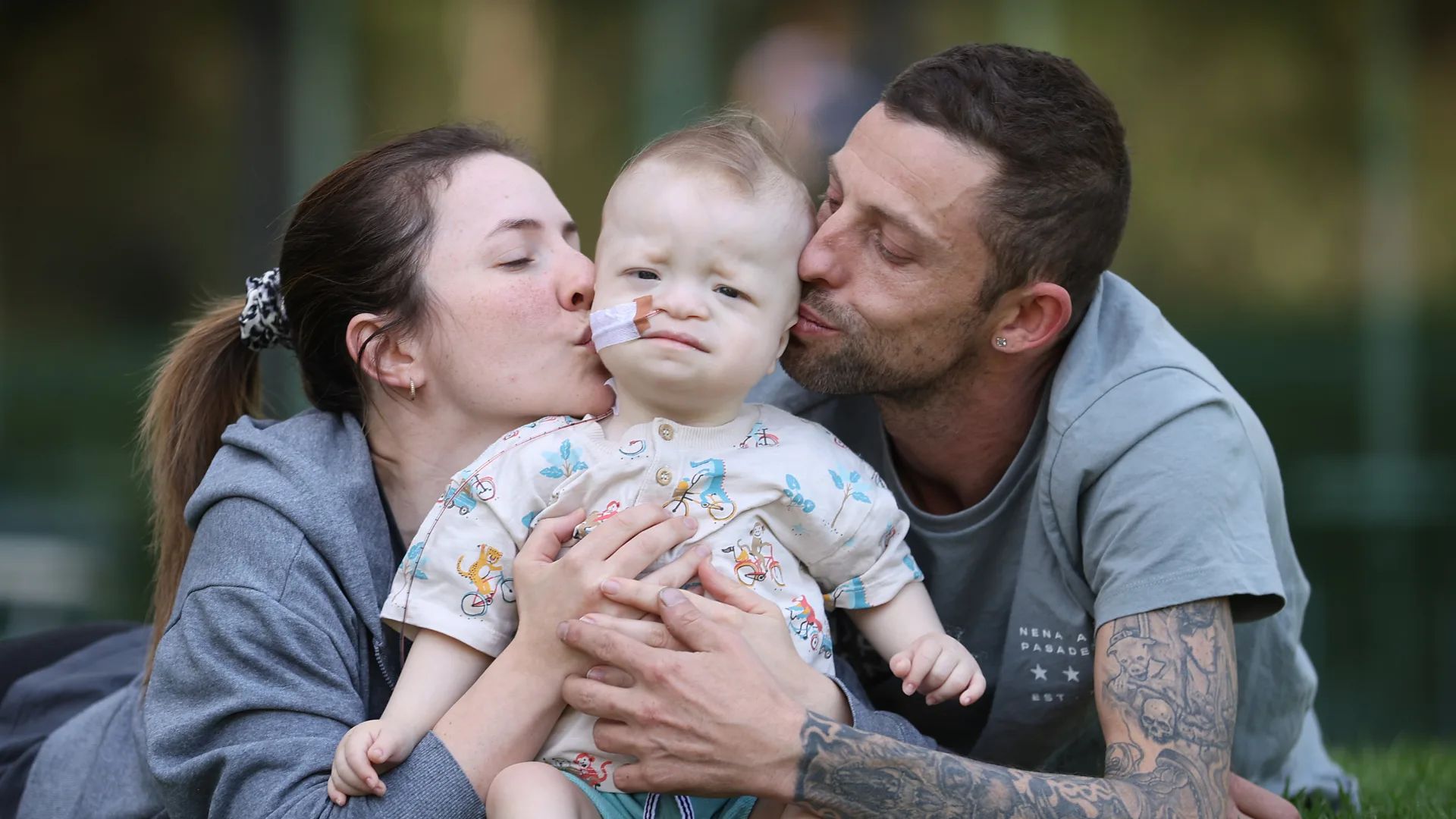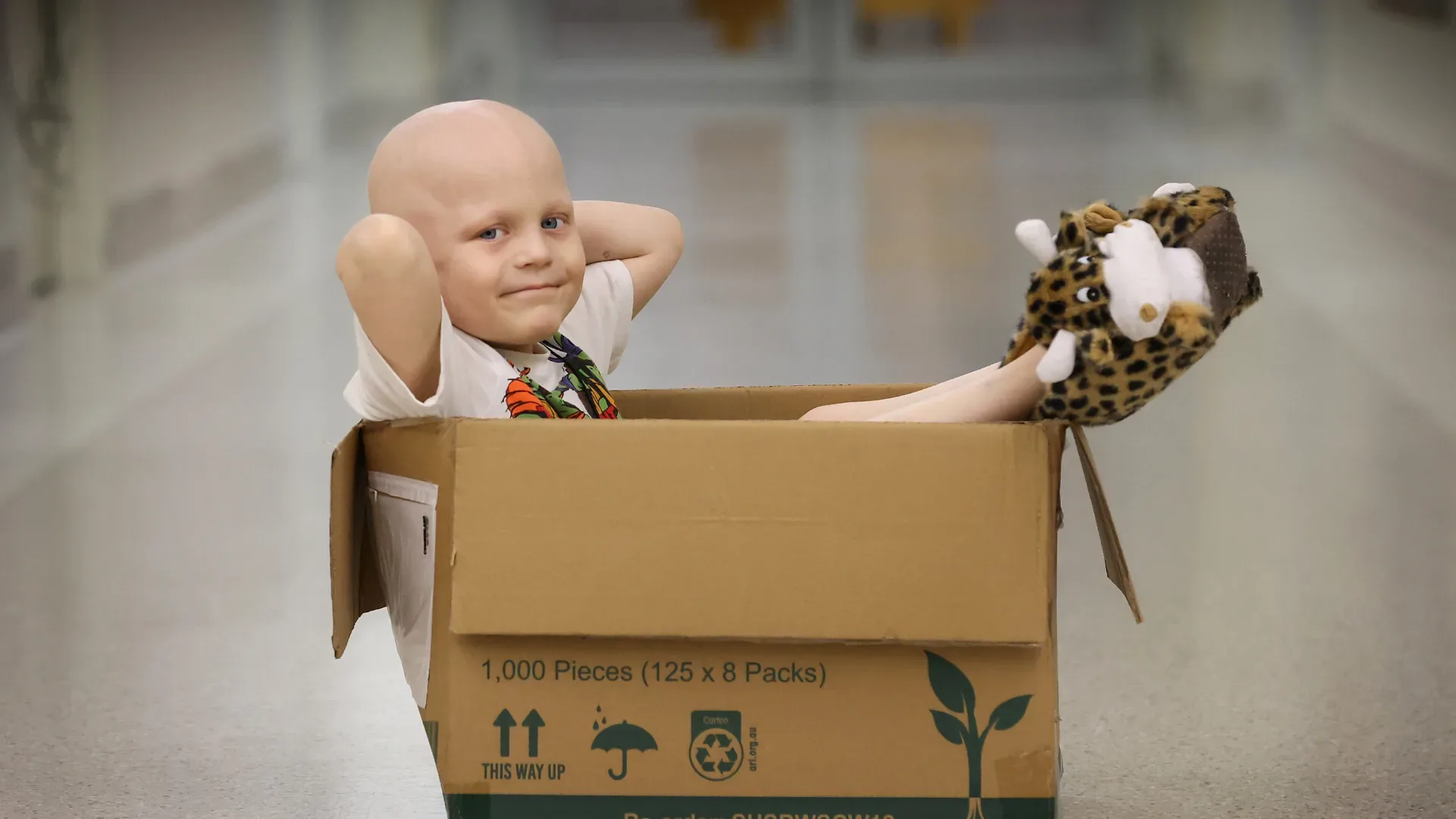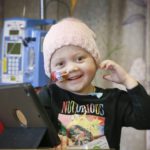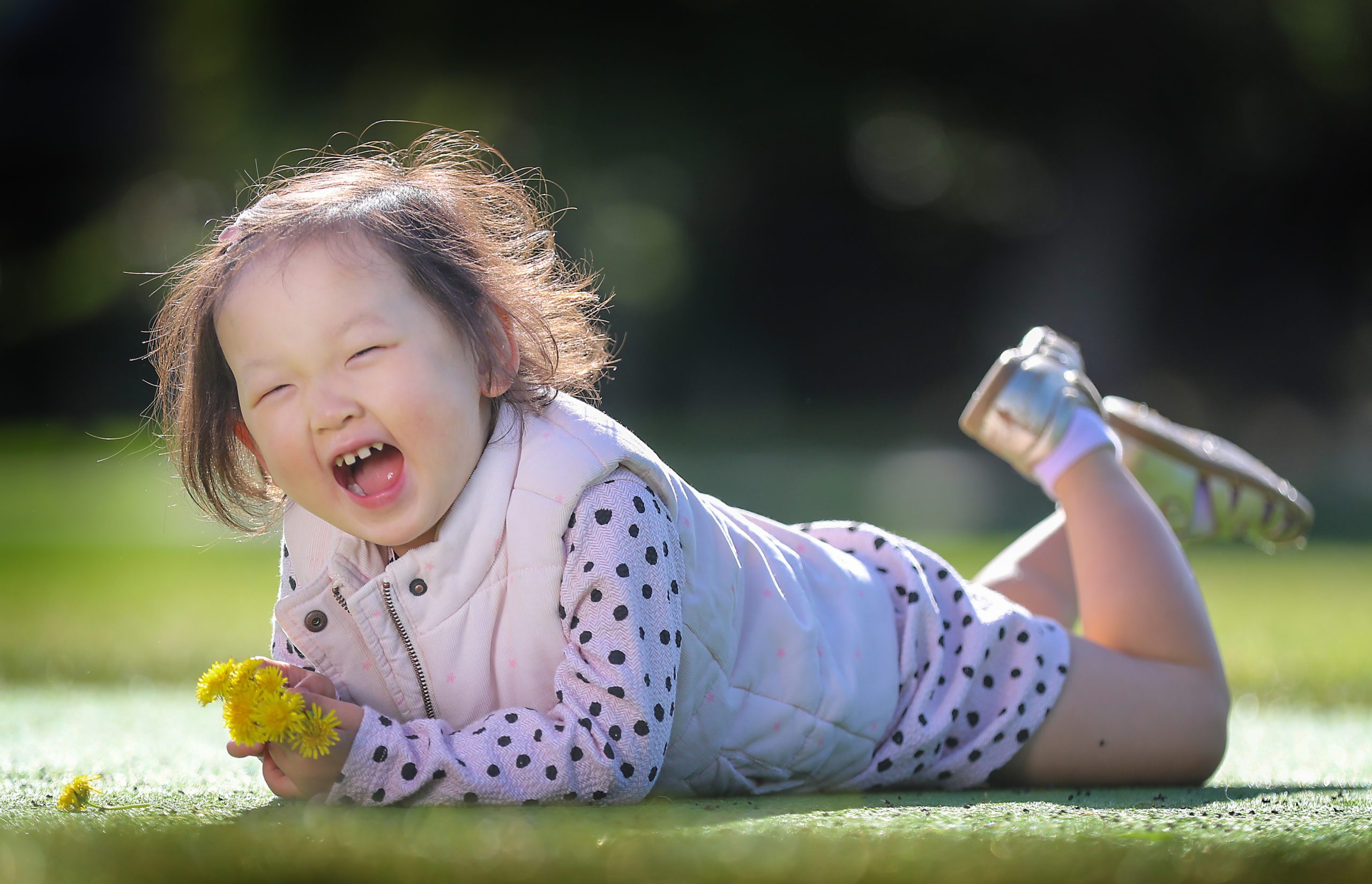
Meet Scarlett
Scarlett has a rare disease known as transverse myelitis — an inflammation of the spinal cord, which interrupts the messages nerves send throughout her body — which has left her left arm paralysed.
Teaching a three-year-old how to move her muscles via video-link isn’t always easy, as there are distractions and difficulties.
But for Scarlett Khoo, it’s meant she can now zip up and down the footpath on her bright green scooter.
Scarlett has a rare disease known as transverse myelitis — an inflammation of the spinal cord, which interrupts the messages nerves send throughout her body — which has left her left arm paralysed.
She developed the disease at just 18 months after contracting the common childhood virus hand, foot and mouth disease.
“It’s a very rare condition,” Scarlett’s mum Felicity Khoo says. “She had the hand, foot and mouth disease about three or four days before her left arm was paralysed.
“She woke up and was just sitting there and her whole left arm was just limp.”
After a few trips to the Royal Children’s Hospital, Scarlett was finally diagnosed with the debilitating disease.
Her left arm still hasn’t recovered, stopping her from reaching up to her parents or lifting toys.
But last year surgeons operated on Scarlett’s shoulder to try and bring back more function to her arm.
“She lost most of her biceps muscle (due to the disease) — so they moved the triceps nerve to the deltoid muscle,” Ms Khoo said.
“She had no shoulder movement — she can’t lift up her arms high.”

It could take up to 18 months to tell if the procedure is successful.
It’s been a long road for the toddler, but she’s been helped all the way by a special rehabilitation team who have made it their mission to ensure she has been able to enjoy a normal childhood.
The team at the RCH have taught Scarlett how to grip the handlebars of her scooter properly — which she now races around on.
And she has regular telehealth sessions (telecommunication consultations) where all allied health teams — from physiotherapists to occupational therapists — can teach Scarlett new exercises or make changes to her rehab based on her physical surroundings.
Dr Olivia Lee is one of the 45-strong team of rehab consultants who provide such care to children from the hospital. They can be stroke patients, car crash victims or kids with rare conditions.
“As a team we work to get them back to a new normal,” Dr Lee says.
“From in hospital to in the community and at home … every kid has a different dream and with this disability we don’t want that dream to go.
“It’s based on looking at what their daily needs are.
“We have always tried to manage kids and support them in the community — with telehealth we’re able to troubleshoot their needs.”
Dr Lee said many children who required rehab were patients for life, meaning teams “watch them grow” and deal with all stages of home, school and even work life.
“We look at how to maximise function to be able to participate,” she said.
Scarlett will continue to see teams of specialists throughout her childhood, but her family is getting back to a new normal at home.
“She needs a lot of telehealth encouragement and entertainment,” Ms Khoo said.
“And we are still waiting for the surgery to work. It’s trial and error … to see whether it will be better for her, to see if she can gain some function.
“She will never recover fully, but otherwise she is a typical three-year-old.”
Originally published in the Herald Sun, April 10, 2020
Words: Alanah Frost
Images: Alex Coppel and David Caird

